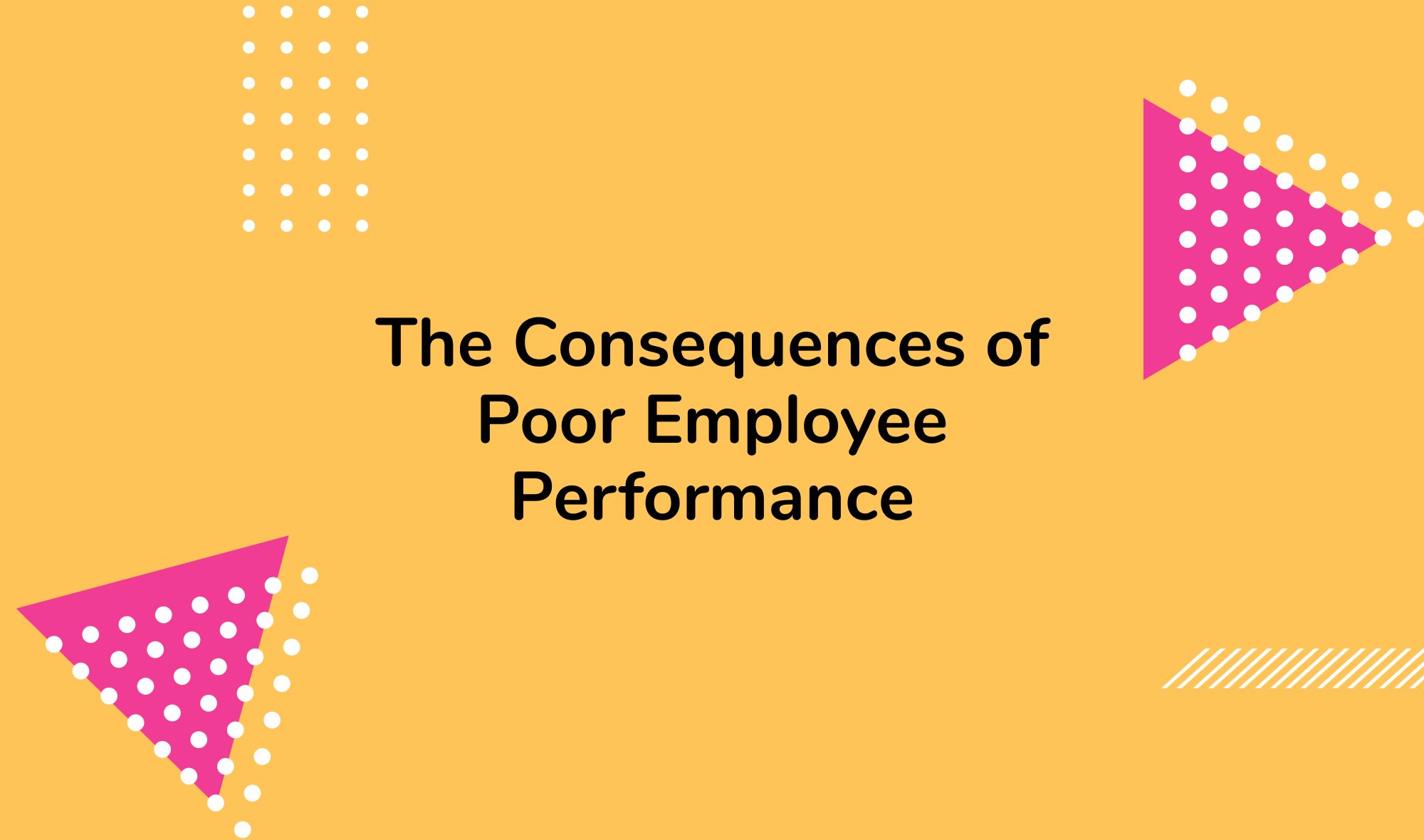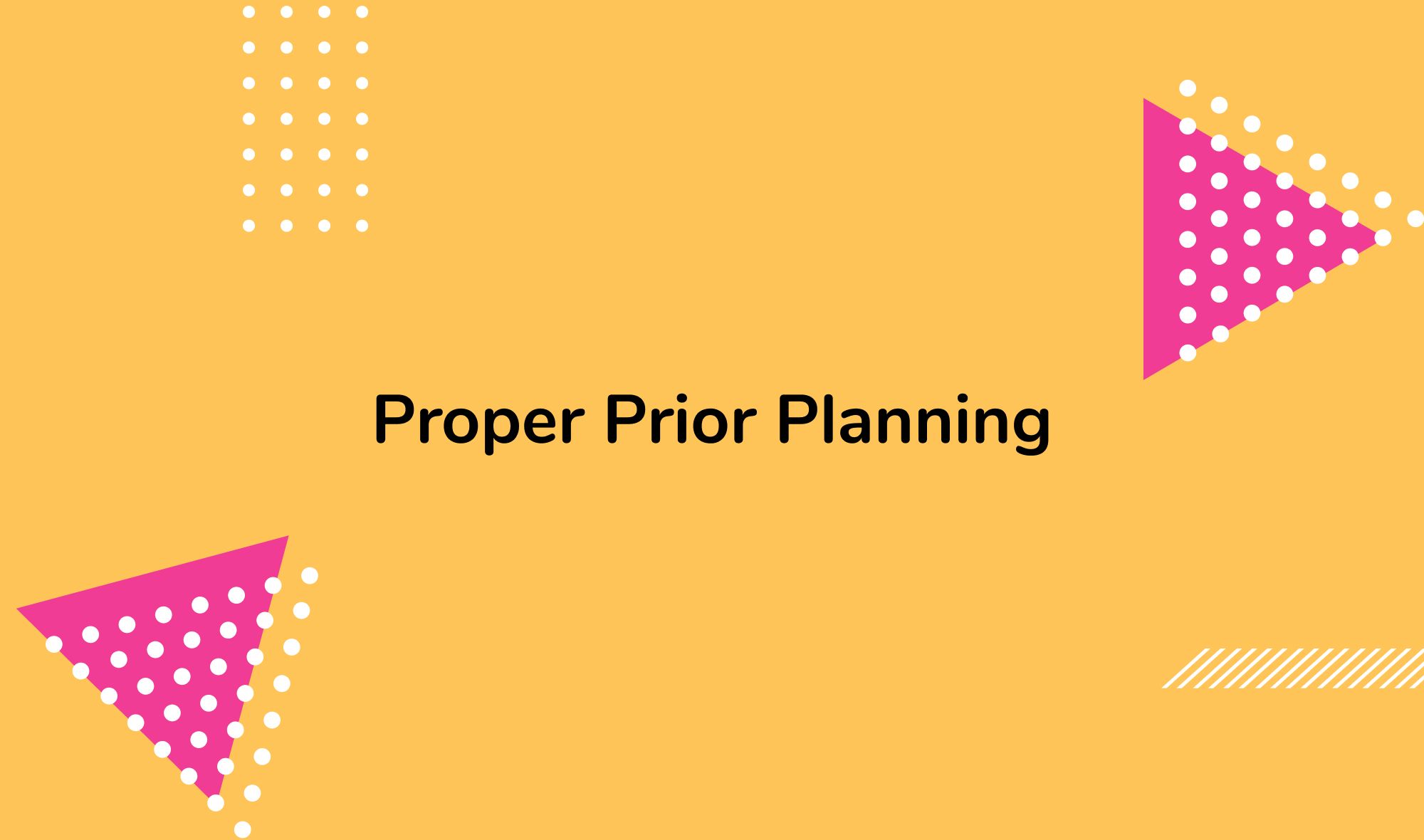Mastering the 5P's: How Proper Preparation Prevents Poor Performance
By Marco Franzoni • July 1, 2023
Key Takeaways
- The 5P's principle (Prior Proper Planning Prevents Poor Performance) can significantly enhance work performance.
- Poor performance can have a ripple effect, leading to poorly performed tasks.
- Proper planning and preparation can save an employee from termination due to poor performance.

In a world that values hustle and speed, it's easy to overlook the importance of proper prior planning. We're constantly told to move quickly, to adapt, and to make decisions on the fly. However, anyone who's suffered the consequences of poor planning knows it's a recipe for poor performance. As the old adage goes, "proper preparation prevents poor performance" - the 5 P's that are instrumental in personal and professional success.
This post delves into the importance of this mantra and offers practical insights into how you can apply it to elevate your performance and avoid pitfalls that come with hasty decisions and lack of preparation. Be it a crucial project at work, a personal goal, or a lifestyle change, preparation is key to overcoming performance problems and driving success.
We will also explore some real-life examples, dissecting how these principles have played out in various contexts, and offering tips to prevent poor performance in your life. By the end of this read, you'll not only understand the importance of the 5P's but also be equipped with the tools to effectively incorporate them into your day-to-day activities.
Let's embark on this journey of achieving higher performance through preparation, where every effort counts, every detail matters, and planning is your secret weapon to success.
Join our Newsletter
Transform your career with our personal growth insights. Get one valuable tip right in your inbox every Saturday morning.
Understanding the 5P’s: Prior Proper Planning Prevents Poor Performance
The 5P's embody a truth we've all experienced but perhaps not always articulated: Prior Proper Planning Prevents Poor Performance. This principle emphasizes the importance of preparedness and foresight in every task we undertake. Let's delve deeper into what each 'P' stands for:
1. Prior: The 'prior' in the 5P's underscores the importance of thinking ahead. It's not just about reacting to situations as they occur, but about anticipating potential issues and proactively setting a plan to address them.
2. Proper: 'Proper' speaks to the quality of the planning process. It involves a thorough evaluation of all available resources, clear understanding of the tasks, and realistic allocation of time and responsibilities.
3. Planning: This is the crux of the process. Planning involves not just mapping out actions, but also understanding the potential roadblocks, defining success, and putting mechanisms in place to track progress.
4. Prevents: The goal of planning is to mitigate issues before they occur. It's about proactively handling potential obstacles and ensuring smooth execution of tasks.
5. Poor Performance: The consequence of inadequate planning is poor performance. Without a concrete plan, even the most skilled and dedicated teams can struggle to meet expectations, and this can lead to disappointment, stress, and failure.
A deeper dive into the concept of the 5P’s reveals that it’s not just a fancy acronym but a potent tool in your performance enhancement arsenal. It’s crucial, whether you're a team member handling a specific task or a manager with the responsibility of ensuring your team meets its targets. In fact, this principle is often emphasized in advanced project management certification programs, which teach professionals how to manage tasks efficiently, minimize risks, and maximize productivity.
For a deeper understanding of the 5P's, we recommend you read the book 'Proper Preparation Prevents Poor Performance'. This insightful resource provides real-life examples, strategies, and tips that highlight the importance of preparation and how it impacts performance.
The Consequences of Poor Employee Performance

Poor employee performance can pose a significant challenge for any organization. It can lead to numerous negative outcomes that extend far beyond the individual employee, affecting entire teams and the organization as a whole. Here are a few key consequences:
1. Decreased productivity: An underperforming employee can slow down the pace of work, creating a bottleneck that hinders the entire team's performance. This can lead to missed deadlines and lower overall productivity.
2. Lower team morale: The consistent poor performance of an individual can demotivate other team members. It can create a sense of frustration and may cause others to question the fairness of workload distribution.
3. Impact on customer satisfaction: If the employee's poor performance is customer-facing, it can lead to negative customer experiences, affecting the company's reputation and customer retention.
4. Increased management effort: Managers may need to spend additional time addressing performance issues, taking away from time they could have spent on strategic planning or supporting other team members.
5. Financial impact: Ultimately, all these factors can negatively affect the company's bottom line. The cost of poor performance can include additional training, hiring temporary help, and even the loss of business.
Join our Newsletter
Transform your career with our personal growth insights. Get one valuable tip right in your inbox every Saturday morning.
A well-functioning team is a lot like a well-oiled machine; if one part isn't working properly, the whole system can falter. Hence, it's essential for managers to address issues of poor performance promptly and effectively. In our article on effective sales management, we delve into how managers can encourage better performance from their teams and create a supportive and motivating work environment.
For additional resources on this topic, consider reading 'The Leadership Challenge'. This book offers excellent insights into how leaders can inspire their teams to achieve peak performance and highlights the importance of addressing poor employee performance for the overall success of the organization.
The Chain Reaction: How Poor Performance Leads to Poorly Performed Tasks

When an employee fails to perform their job to expectations, it doesn't just affect their individual tasks. Poor performance can trigger a chain reaction that impacts the broader organization. Let's break down this ripple effect:
1. Incomplete or erroneous tasks: An employee's poor performance often manifests in tasks performed incorrectly or left incomplete. This sets the stage for problems to cascade down the line.
2. Increased workload for others: When tasks aren't done correctly, other team members may need to step in to rectify the errors, leading to an increase in their workload and potentially causing their own performance to suffer.
3. Missed deadlines: With tasks taking longer to complete, project timelines can be thrown off, causing deadlines to be missed and overall team productivity to suffer.
4. Negative impact on team morale: As team members grapple with the consequences of poor performance, morale can take a hit. Over time, this can lead to a cycle of worsening performance and declining motivation.
5. Damage to company reputation: In the long term, poor performance and the associated ripple effects can harm the organization's reputation, impacting relationships with clients, customers, and other stakeholders.
In the face of such challenges, creative solutions are needed to break the cycle and improve performance. Check out our article on finding creative solutions for some fresh ideas on this topic.
At the heart of this chain reaction often lie habits—patterns of behavior that employees repeat over time. To truly address the root cause of poor performance, it's crucial to understand and work on changing these habits. Charles Duhigg's book 'The Power of Habit' provides powerful insights into how habits work and how they can be changed to foster better performance.
Proper Prior Planning: The Key to Stellar Performance

Proper prior planning is more than a mere adage—it's a fundamental truth in the world of work and management. Having a clear, well-thought-out plan helps guide employees' efforts, enabling them to perform their tasks more effectively and efficiently. It's the cornerstone of stellar performance, but how exactly does it achieve this?
1. Clear vision and objectives: Proper prior planning establishes a clear vision and defines specific objectives. When employees know exactly what they're working towards, their performance tends to improve.
2. Resource optimization: Through planning, managers can make the best use of resources, including the abilities and skills of team members. This leads to increased productivity and performance.
3. Anticipation of challenges: Proper planning allows you to foresee potential issues and prepare solutions in advance, reducing the likelihood of poor performance.
4. Improved motivation and morale: When employees have a clear roadmap, they feel more confident and motivated, resulting in better performance.
5. Accurate tracking and evaluation: With a solid plan in place, it's easier to track progress, assess performance, and implement improvements.
At Zella Life, we've delved deep into what makes a good manager, and proper prior planning features prominently on that list. In our blog post on how to become a good manager, we offer further insights and practical tips on the art of planning.
Stephen R. Covey's book '7 Habits of Highly Effective People' is also an invaluable resource. Covey underscores the importance of beginning with the end in mind, a philosophy that goes hand in hand with proper prior planning.
Case Study: How Proper Preparation Saved an Employee from Being Fired for Poor Performance
Let's delve into a real-life example to further emphasize the role and significance of proper preparation in averting poor performance.
Imagine the story of John, an employee who had been struggling at work. His job performance had dipped, causing concerns within his team. Things had come to such a pass that he was on the verge of being fired.
John was given one last chance to turn things around, and this is where proper preparation came into play. With the help of his manager, John embarked on a journey of proper preparation to improve his performance. Here's how they did it:
Step 1: Identifying the Problem – John and his manager first identified the root cause of the poor performance. It wasn't a lack of skills, but rather a lack of proper planning and organization in his work.
Step 2: Setting Goals – Next, they set clear, achievable goals. This helped John know exactly what was expected of him.
Step 3: Creating a Plan – John, with the help of his manager, created a detailed plan to meet those goals. The plan was broken down into daily tasks and activities.
Step 4: Execution and Tracking – John began executing the plan. His progress was tracked, and feedback was given regularly to ensure he was on the right path.
Step 5: Regular Reviews – Regular review meetings were held to discuss John's progress, address any issues, and tweak the plan as needed.
The result? John's performance improved significantly. The proper preparation not only saved John from being fired but also helped him grow professionally.
This is a perfect example of how the dynamics between an individual contributor and a manager can affect the overall performance of an employee. In our next section, we will delve deeper into tips and techniques to aid proper preparation and planning. In addition to adopting the 5P's principle, you might also consider enhancing your leadership skills by learning how to become an executive coach.
If you're considering executive coaching, explore our article on how to choose the right coach for detailed insights.
Harnessing the Power of Preparation to Transform Performance
Our journey into the 5P's – Prior Proper Planning Prevents Poor Performance – provides critical insight into managing performance issues in the workplace. Whether you are an individual contributor or a team leader, understanding these concepts can guide your actions and significantly improve the quality of work you and your team produce.
We started by unpacking the meaning of the 5P's and then highlighted the detrimental effects of poor employee performance. Through exploring the ripple effect of poor performance, we demonstrated how this issue, if left unaddressed, can lead to a chain reaction of poorly performed tasks. We also emphasized the power of proper prior planning in turning around performance outcomes, as seen in John's case study.
Just as author Daniel Kahneman illustrates in his seminal work, Thinking, Fast and Slow, our minds can work in two systems: one fast and intuitive, the other slow and deliberate. Embracing the principles of the 5P's requires us to engage our 'slow thinking,'—the thoughtful and deliberate planning process that precedes the execution of tasks.
In your professional life, start embodying the 5P's today. Understand the root causes of any poor performance, define clear goals, create a detailed plan, diligently execute it, track your progress, and adjust as needed. Transform your work, your career, and your life with the power of proper preparation.
Remember, Prior Proper Planning Prevents Poor Performance. The success that you desire is within reach. Begin your journey towards improved performance today!
PS: Discover more about how Zella Life was selected for the Google for Startups Latino Founders Fund, a testimony to Remy's dedication to social impact and her role as a change-maker in the business community.
If you're interested in improving workplace culture, check out our blog post on building a better business to identify and correct negative workplace culture. To learn more about improving workplace culture, check out our blog post on building a better business.
Read more about: Professional Development, Executive Coaching